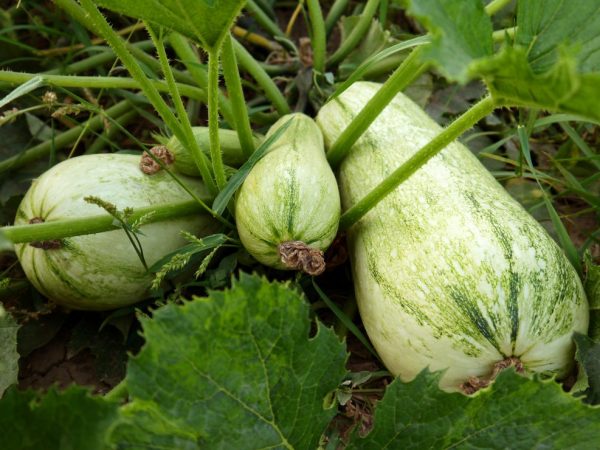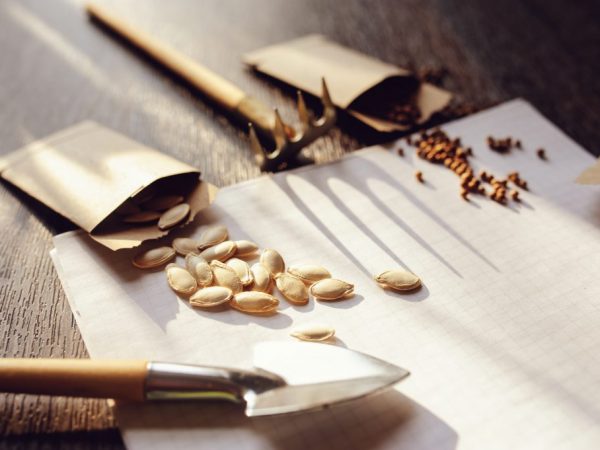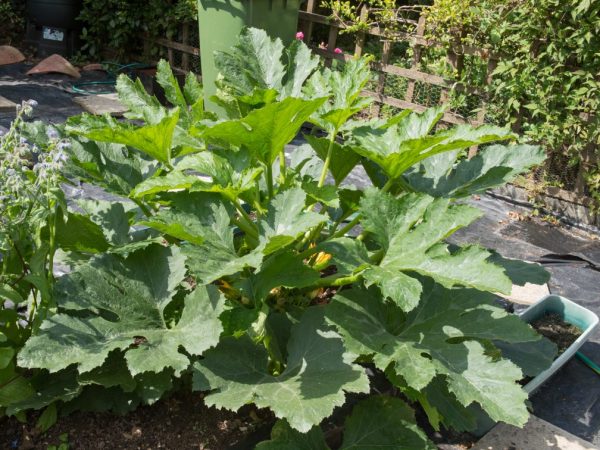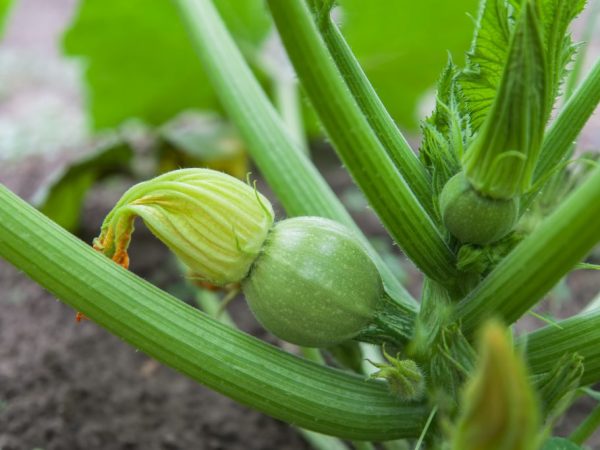Rules for growing zucchini
Zucchini is an unpretentious, but very tasty and healthy vegetable. Growing zucchini outdoors must follow certain rules. Let's consider the main questions.

Rules for growing zucchini
Seed selection
Planting any crop begins with the selection of seeds. Depending on how correctly they were chosen, the yield of the crop will depend to some extent.
Zucchini seeds can be grown on their own or purchased ready-made in special stores.
The main points to consider when buying.
- The grower must have a good reputation, it is advisable that you already have experience in growing his products.
- Quality seeds have already been treated with special agents against diseases and insects.
- Imported almost always hybrid - experienced gardeners do not recommend purchasing such planting material, they prefer domestic ones.
- The shelf life of seeds is no more than 5 years. Every year the level of their germination decreases.
When grown outdoors, zucchini are influenced by climatic conditions, so it is especially important that the variety's performance is appropriate for the region.
The harvest is not the same in different areas: a crop that is not suitable for a harsh climate can grow poorly or even die.
- In Siberia and the Urals, vegetables grow that have amazing frost resistance.
- In the suburbs, where the climate is temperate, you can plant a large number of varietal zucchini.
- Leningrad zucchini are famous for a wide variety. This can be attributed to a suitable climate.
Preparing seeds and beds for planting
To get strong and healthy plants, seeds must be properly selected and germinated before sowing. The preparation process includes several stages.
- To determine the suitability, a saline solution (5%) should be prepared in a bucket, the seeds are placed there. Those that remain on the surface are not suitable. The rest should be rinsed and slightly dried.
- To reduce the risk of diseases of young plants, it is recommended to disinfect them. This is done using a weak solution of potassium permanganate (1%), in which for 20 minutes. sowing material is immersed.
- To stimulate growth, seeds are soaked for a day in water with the addition of wood ash (20 g per 1 liter).
- For greater resistance of plants to bad conditions, they can be hardened. Its essence lies in the fact that during the day the seeds are kept at normal room temperature, and at night they are placed in the refrigerator.
Seeds can be planted both in open ground and in special containers in order to obtain seedlings.
For an earlier harvest, cultivation through seedlings is better: you need to plant the seeds in individual peat containers a month before planting in a permanent place.

Seeds need to be prepared for planting
The garden bed for zucchini should be well lit and prepared (the earth is loosened, fertilizers are applied, and moistened if necessary).
The composition of the soil is also taken into account: light sandy loam or loamy soil is considered the most suitable.
Landing
Planting zucchini in open ground begins at the end of April.
It is necessary that the soil warms up to at least 12 ° C, otherwise the culture will grow slowly.
The prepared seeds are placed in 3-6 cm depressions, several pieces per hole (after their appearance, the weaker ones must be removed).
After sowing, the soil surface is mulched with peat or humus - this will protect the soil from excessive drying out.
Growing rules
Zucchini are not capricious crops, capable of adapting even to not entirely favorable conditions.
The agrotechnology of growing zucchini involves basic care actions: regular watering, fertilization, getting rid of weeds, diseases and pests.
It is not necessary to form a culture; if the green mass is too abundant, it is better to remove the weakest or damaged leaves.
Irrigate once a week, and more often if necessary. To moisten the soil, warm water is used, which is poured into the root zone of the plant.
It should be borne in mind that an excessive amount of moisture can lead to decay of the plant rhizomes, the appearance of putrefactive diseases and, as a consequence, to a significant decrease in yield.
Fertilizing zucchini gives good results, although it is not necessary to do them with fertile, properly prepared soil.
It is important to harvest the crop on time - this will make it possible for new ovaries to form, and the plant will not be burdened with large fruits.
Growing on a compost heap

Growing on a compost heap will yield a rich harvest
A compost heap is a garden bed, which is based on all types of organic fertilizers that can decompose under the influence of certain microorganisms. Use dry mowed grass, fallen leaves, overripe straw, etc.
A rich harvest is obtained on a well-formed compost heap.
You need to take care of zucchini in the same way as for their congeners, which grow in open space.
The soil in the compost pit is always a few degrees higher than in normal soil, so it is excellent for thermophilic crops, in particular for squash.
Growing in bags
Many gardeners do not want to engage in the farming of vegetable marrows, because this culture grows, taking up a lot of space on the site. Breeding in bags can be a way out of this situation.
This clever method not only saves space, but also allows you to grow beautiful, attractive fruits.
Technology:
- Take a regular flour or sugar bag and punch a few small holes in the bottom of it.
- Place any organic waste on the bottom of the future "bed": fallen leaves, straw, thin branches, etc.
- A layer of soil and sawdust should be poured on top of the organic content. Moisten the soil in the bag if necessary.
To create a greenhouse effect, the bags can be covered with plastic on top. In this case, it is necessary to regularly ventilate the seedlings until they gain enough strength to grow on their own.
Care involves regular moistening of the soil, and the zucchini themselves need to be treated with remedies for diseases and pests.
During the ripening period, the zucchini do not lie on the ground, but are located near the bag, so there are few defective fruits.
Growing in winter

Zucchini can be grown in a greenhouse in winter
It is possible to plant seedlings in a greenhouse already in winter, and then at the beginning of spring there will already be a full harvest (a polycarbonate greenhouse is perfect).
The yield of the crop will depend on the quality of the soil.
It is better to plant from already strengthened seedlings - so the plants will sooner take root, and begin their active development.
Recommendations
- Greenhouse zucchini do not require the introduction of nutrients into the soil; those that were used before planting will be enough. Otherwise, this will lead to too active growth of the ground part of the plant, and, as a result, a small number of ovaries and fruits.
- In order for the zucchini to give the maximum number of ovaries, they need pollination. In greenhouse conditions, this is done by the gardener.
- It is better to pick greenhouse fruits at the earliest stage of ripeness. This way you can extend the fruiting period of the plants and increase the yield.
Growing on the balcony
You can grow zucchini not only in the country, but also at home - on a balcony or loggia.
With a minimum investment of time and money, a good harvest is obtained.
Recommendations
It is worth considering the following features:
- The seedlings must first get stronger on the windowsill, and only after that they are transferred to the balcony.
- For limited space, it is better to choose white-fruited zucchini varieties, which are characterized by compact size.
- Plants need regular watering.
- Balcony squash is good for mulching, which allows you to save moisture in the soil.
- If the balcony faces the side strongly illuminated by the sun, it is necessary to create a shade for the bush plants, especially in the midst of a sultry day.
- It is recommended to slightly thin out the zucchini bushes from the excess green mass.
- Harvesting zucchini in an apartment should be done in a timely manner and regularly. This will prevent the plants from overgrowing and lengthen the fruiting season.
Gardening Secrets
Experienced gardeners who have been growing zucchini for more than one year are happy to share their secrets.
- To obtain a constant harvest, planting should be carried out at intervals of 1-2 weeks.
- Most varietal zucchini are thermophilic plants that love moisture. Therefore, when caring for them, be sure to take this into account.
- Harvesting should be done regularly to avoid overripe.
- If you decide to grow zucchini at home, on the balcony, then you should take care of pollinating insects. For their

